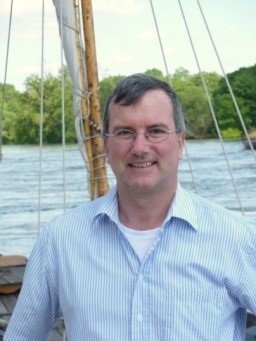Biography

Professor Wantzen’s research interests are focused on the question: “How can science help to improve conservation of nature?”. This requires a deep unterstanding of the biological processes and diversity, the identification of the critical species traits, and the transfer of this knowledge into practical measures. His carreer reflects the sequence of these steps, and recently, with the River Culture Concept, he analyzes how human-nature-relationships can contribute to sustainable ecosystem management.
His expertise covers animal ecology and biodiversity, specifically in freshwater systems and their aquatic-terrestrial interaction zones. After studies on the Rhine River, where he introduced novel freeze-core technologies to analyse the invertebrate fauna of the ecotone between surface water and groundwater (hyporheos), he developed a GIZ-project on the environmental impacts of agriculture in Brazil on the biodiversity and functional ecology of stream ecosystems. His PhD study at the Max-Planck-Institute was rated “summa cum laude”. Then he coordinated a research project funded by the German Ministry of Research BMBF for eight years at the Federal University of Mato Grosso, Brazil, resulting in the build-up of a MSc/PhD program and a new national research institute. This project focused on delivering scientific basics for floodplain and wetland management, as documented by a 31-chapter book, which he co-edited. His personal work focused on stable isotope analysis of food webs and on functional biodiversity in floodplains and stream systems, for which he developed a world-wide comparison experiment.
Back to Germany in 2001, he built up a DFG-funded research group on aquatic-terrestrial interactions at University of Konstanz, with a special focus on animal-mediated carbon transfer. His habilitation thesis on ecology, biodiversity and management of river-floodplain corridors was accepted in 2007. He substantially contributed to concept development and theory on ecosystem functions and biodiversity, such as the Flood-Pulse-Concept and a global concept for organic matter processing in aquatic systems. He is co-editor of the book series “Aquatic Biodiversity in Latin America”, which helps to identify aquatic organisms and to improve our knowledge on their ecology.
In 2010 he accepted a position as a full professor in Aquatic Ecology at the University of Tours, where he built up new laboratories and the Chinon Center for Freshwater Studies, and from where he co-ordinated a LIFE project (2014-2018) by the European Union to save the last populations of the Giant Freshwater Pearl Mussel in Europe by river management and artificial breeding. In 2014 he was nominated "UNESCO Chair for River Culture/Fleuves et Patrimoine", awarding his efforts for knowledge transfer between Europe and the Tropics (renomination in 2018). In January 2015, the Président de la Région Centre, François Bonneau, has acknowledged these achievements entitling him has “Talent de la Région Centre”.
The River Culture Concept (Wantzen et al. 2016) is increasingly considered as an innovative tool for harmonising humans and environment in river-floodplain corridors worldwide, resulting in regular conference opening speech invitations to Brazil, Argentina, France, China and the Philippines and is currently object of his 14th edited book “River Culture – Life as a dance to the rhythm of the waters”.
His current research themes include a global comparison on River Culture and its applications in management, urban aquatic ecology, and plastic pollution.